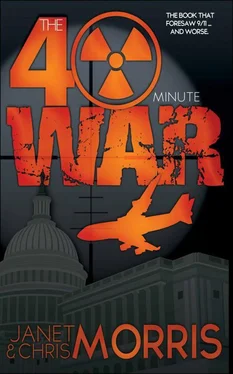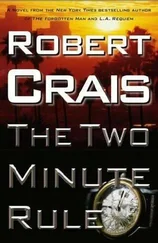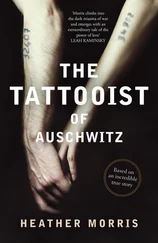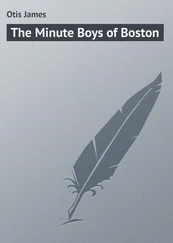Suddenly, wondering which way the wind was blowing, Beck focused through the Plymouth’s tinted glass on the sun-baked road ahead, blinked, then cranked the steering wheel around and the Plymouth went up on two wheels to avoid a woman and a donkey crossing the road directly in his path. Beyond them, eucalyptus whispered, their leaves shimmying in a white-hot breeze blowing steadily to the southeast.
Pretty well, Beck knew, wasn’t good enough when you were in the field. He had no doubt that, by qualifying CIA’s high-priority-flagged warning of an imminent terrorist attack on Home Plate and Ashmead’s ability to deal with it, the blame for this was going to end squarely in INR’s—more specifically Beck’s—lap.
Ashmead and his team had end-run themselves this time. Beck hoped to hell they hadn’t end-run the whole intelligence community—or the whole blessed US of A: a “Nuclear Incident” like this could start a damned war. Worse, it could destroy the all-important “liaison service” relationships American intelligence enjoyed with a host of other nations, if word got out that a field agent had ignored a pullback.
The thought made him nervous and he began punching buttons on the Plymouth’s multiband. When the radio chattered on blithely in Hebrew, Arabic and English of quotidian affairs between musical interludes, he could only assume that stringent Israeli security measures were in effect.
And that made good sense: only the parental and unceasing care of the US kept Israel from destruction by her enemies. But then again, it was ridiculous to assume that even the Israelis would censor news of this magnitude or that even Israeli paranoia could look at what had happened in Riyadh and assume it meant the destruction of the State of Israel. So it had to be something more: sensitive negotiations to keep the true situation top secret must be in progress.
And this, finally, cracked Beck’s calm: in the air-conditioned sedan, he began to sweat. If Ashmead had really fucked up, and the bomb went off in downtown Riyadh, not only might the US have to pack up and go home, so far as the Gulf States were concerned, at least, and probably throughout the Middle East, but retaliation became a real possibility: if the Saudis demanded American help or used American weapons to go after Libya, Iran, and the Palestinians headquartered now in Jordan with nuclear or even conventional weapons, Beck was in on the beginning of World War III—the Soviets couldn’t stand by and let their client states take it on their collective chin.
By the time he careened into East Jerusalem, Beck was getting visual confirmation of a mobilized Israel and a deep security hush in place: too many of the wrong kind of official vehicles on the streets; too few of others.
Driving up to the new temporary American Consulate, he was praying in nonsectarian fashion for the English-language radio commentator to drop even a hint of the nuking of Riyadh—if it went public, that was a sign that repercussions had been or could be contained.
But it wasn’t forthcoming. He told himself that there was no way it could be as bad as he was assuming it might be—a state of actual war in the Gulf ought to leak, even in Israel.
RSVP. Right. Check.
A pair of stone-faced Marines stopped him at the compound gates, their M16s on full auto. It was the weapons which told him for sure, before one Marine said, “I guess you know we’d really appreciate a confirm or deny on this, Sir, if and when you can—some sort of prognosis, damage estimates….”
“As soon as I know, Sergeant. What are all those people doing in there?” Beyond the guardpost, a queue of civilians had formed. Beck could imagine what the Americans in their rumpled polyesters wanted—emergency travel arrangements home; he was just trying to cover his own confusion.
A glance in the rearview mirror showed him a taxi pulling up and a woman with a boyish haircut and the custom-tailored bush jacket of a press type getting out, a carryall in hand. Her face was pale and her jaw squared.
“Just citizens, sir; and newsies. You know you can’t keep something like this… rumors, that is… quiet long,” said the Marine sergeant thickly.
When Beck looked up at the guard, he saw that the man’s chin had doubled and his lips were white. “Hey there,” Beck caught the Marine’s gaze and held it, “this isn’t Teheran. And anyway… when the going gets tough… Right?”
The Marine squared his shoulders: “That’s right, Sir,” he replied. “As long as we’ve got a compound to protect… well, you know—it’s got us.”
Haven’t lost your touch, anyway, Beck told himself.
By then the woman with the carryall was hiking up the drive, hallooing and breaking into a trot. She had on sensible tennis shoes and the bag was now over her shoulder.
Beck was about to put the Plymouth in gear when she put a hand holding a cassette recorder on its fender, then on the half-open glass of his window: “American Consular Corps?” Her voice was husky, but it might have been from emotion. She ducked her head to peer into his car and he decided she was very pretty—she shielded her eyes and said, “Thank God… I saw the CD on your car… look, let me go in with you. I can’t stand in that line. I’ve got to get a statement. Please?”
The Marine was telling her with firm politeness not to bother Beck and the way was clear before him, the Plymouth idling. All he had to do was drive on.
But the woman was grasping the window, ignoring the Marine, leaning in so that the press credentials on her breast pocket were easy for him to read: The New York Times . “Come on,” she said insis tently, “give a fellow countryman some help: we’ve had a report of a nuclear bomb going off at the Riyadh airport. Can you confirm or deny? What’s the chance of it touching off a war, Mister—?”
Newsie or not, she was exceptionally pretty. And she’d given him a piece of information. “Ms…. Patrick, you know I can’t help you. You’ll have to stand on line with the others. As for a statement, I’m afraid I can’t comment at this point in time.” He gave her a cool smile and from the driver’s side pushed the button that caused the electric passenger window to roll slowly upward.
Taking her hand away, she said hopefully through the closing window, “Maybe later, then, Mister—?” as the Marine took her firmly by the shoulder and Beck accelerated away from the guardpost toward his parking slot.
As he walked around toward the front of the building he got a glimpse, through the open window of Dickson’s office, of Ashmead, his deputy, and the leonine head of the Ambassador himself.
It was going to be one hell of a hairy meeting, with the Ambassador in attendance. The only consolations Beck could think of were that Ashmead and his deputy were alive to take the blame and that the meeting wasn’t taking place in Tel Aviv—a sign that no one had any intention of making more of this mess than was absolutely necessary.
The RSVP had been an invitation to this “party” at which a cover story would be developed—that meant that they were going to need one, and that meant that State and Defense and CIA had decided the matter was containable.
No longer worried that he’d been instrumental in starting World War III, Beck began to get angry. Ashmead and his deputy better have a damned good explanation for jumping that order.
Inside—once he’d threaded his way through the confusion of nervous tourists who had no intention of spending any longer than necessary in the volatile Middle East now that there’d been a nuclear incident, and reporters slavering for details—he learned that Ashmead didn’t have any explanation whatsoever.
“I’ve got a goddamned tape on its way here from my station of the priority go order as it came in from Langley,” Ashmead was saying through gritted teeth, his big hands trying to strangle the windowsill, as Beck came in and closed the door behind him.
Читать дальше












